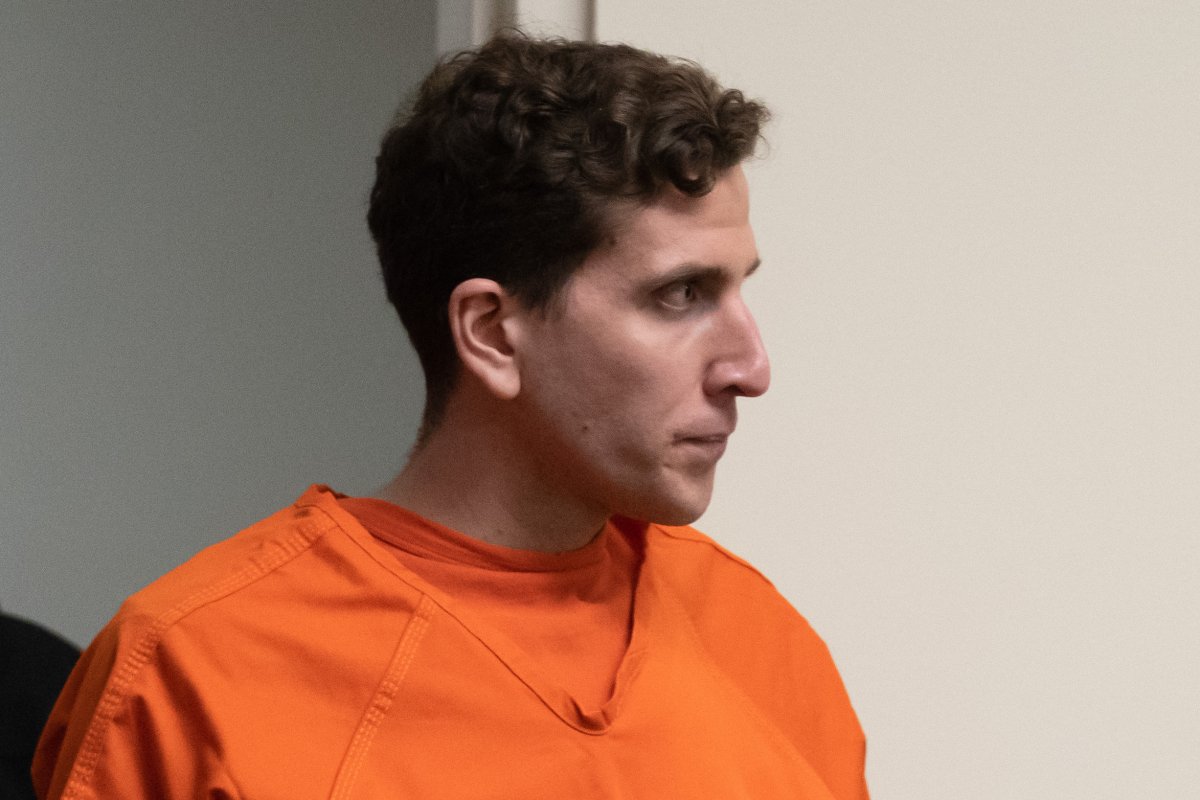- Bryan Kohberger, 28, is accused of killing four University of Idaho students.
- Prosecutors have disclosed to the court "potential Brady/Giglio material" about an officer involved in the Kohberger investigation.
- A legal expert has described the disclosure as "an unnecessary and unforced error by the government."
Prosecutors in Idaho have this week disclosed that an officer who worked on the Bryan Kohberger case has been the subject of a "confidential internal affairs investigation."
Kohberger, 28, is charged with four counts of first-degree murder and burglary in the deaths of Kaylee Goncalves, 21, Madison Mogen, 21, Xana Kernodle, 20, and Ethan Chapin, 20. The four University of Idaho students were found stabbed to death in a rental home in Moscow on November 13 last year.
Kohberger, who was a graduate student at Washington State University in Pullman at the time of the killings, has not yet entered a plea, but a lawyer who previously represented him said he was "eager to be exonerated."
A preliminary hearing is set to begin in late June.
On Monday prosecutors submitted a notice to Latah County District Court about "potential Brady/Giglio material" related to an officer involved in the Kohberger investigation.
Michael McAuliffe, a former federal prosecutor and elected state attorney, told Newsweek that the disclosure was "an unnecessary and unforced error by the government … but it won't result in a dismissal."

A Brady notice, or Brady/Giglio, refers to the duty of prosecutors to disclose potentially exculpatory evidence, under direction from the Supreme Court in Brady v. Maryland.
In Giglio v. United States, this duty was expanded to include evidence that could be used to impeach the credibility of a witness.
Latah County Magistrate Judge Megan Marshall granted a protective order requested by prosecutors to keep the material from being publicly disclosed, because they are personnel records. This means the material cannot be made public by Kohberger's defense team.
McAuliffe said: "The prosecutors in the Kohberger case have an affirmative obligation to turn over any exculpatory information to the defense."
The scope of what must be turned over "includes potential impeachment material of any investigator who worked on the case," he said. "An active internal affairs investigation of one of the officers or detectives would fall under that duty to disclose."
Prosecutors sometimes fail to turn over materials because they are not aware of it, according to McAuliffe. "Of course, it's also possible the prosecutors simply didn't do their jobs. It's impossible to know at this point."
Since this case is in a pre-trial phase, "any potential violation of the government's Brady/Giglio obligations likely can be cured by belatedly turning the information over to the defense."
Asked about the notice's potential impact on the trial, McAuliffe said: "The episode is an unnecessary and unforced error by the government in an important case, but it won't result in a dismissal. Whether the new information about an officer results in any significant change in the course of the case depends on the specific information now being disclosed.
"It might be gross misconduct of a primary detective or it might be a minor transgression of a marginal investigator."
Neama Rahmani, an attorney and former federal prosecutor, told Newsweek that "though it's possible there is evidence of Kohberger's innocence, the court order is really referring to documents in the investigating officers' personnel files that may impeach them if they take the stand.
"This could be evidence or illegal or unethical conduct, or even the officers lying. This usually relates to other cases that have nothing to do with Kohberger.
"The judge will review the files in camera or in chambers and decide what evidence of officer misconduct, if any, to produce to the defense."
Criminal defense attorney Mark Geragos discussed the difference between Brady and Giglio notices during an appearance on NewsNation.
"If it was just something that would impeach [the officer's] credibility, that would generally be Giglio. If it is something that is potentially exculpatory, then that is Brady," Geragos said.
"They call this Brady material, which leads me to believe that it's an accusation that this is something that has either been falsified, or there's an investigation as to whether it is falsified."
Geragos added that this "does not necessarily mean" the internal affairs inquiry is related to the Kohberger investigation.
"However, if it is in a prior case, and that is generally what this is in a Brady disclosure, that can potentially be used in this case. The reason that they can potentially use it is because they can cross-examine on it, they could ask other witnesses as to what happened."
Update 03/29/23, 9:20 a.m. ET: This article has been updated with comment from Michael McAuliffe.
Update 03/29/23, 10:25 a.m. ET: The headline on this article has been updated.
Update 03/30/23, 2:30 a.m. ET: This article has been updated with comment from Neama Rahmani.
Uncommon Knowledge
Newsweek is committed to challenging conventional wisdom and finding connections in the search for common ground.
Newsweek is committed to challenging conventional wisdom and finding connections in the search for common ground.
About the writer
Khaleda Rahman is Newsweek's Senior News Reporter based in London, UK. Her focus is reporting on abortion rights, race, education, ... Read more
To read how Newsweek uses AI as a newsroom tool, Click here.








